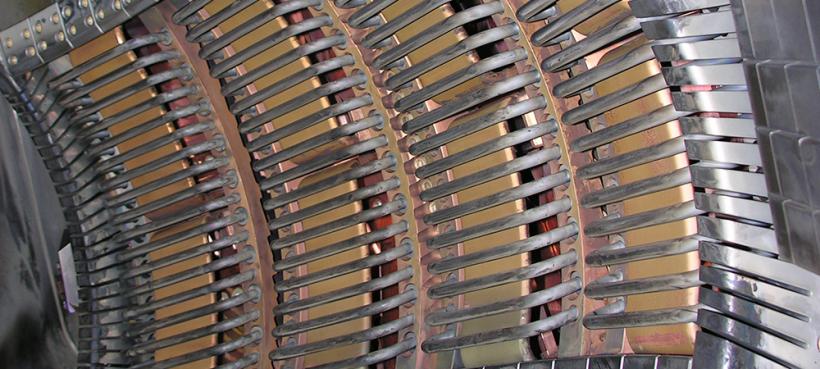
To reach fusion conditions, magnetically confined plasmas must be heated to extremely high temperatures. Additionally, tokamaks require a source of high-power current drive to sustain the plasma for long periods of time. For an attractive fusion reactor, these heating and current drive sources must be efficient, operate continuously, be compatible with the reactor environment, and predictably generate the required plasma conditions. Radiofrequency (RF) heating and current drive have long been recognized as essential tools for realizing a steady state tokamak – without these technologies, the tokamak concept as the basis for a steady-state, electricity producing power plant cannot be achieved.
RF heating and current drive research at the PSFC focuses on two techniques in particular. The Lower hybrid range of frequency (LHRF) has been identified as one of the most promising sources for off-axis current drive with its high efficiency and the proper current profile, while Ion cyclotron range of frequency power (ICRF) provides efficient bulk heating and promising flow drive. Alcator C-Mod relies exclusively on these RF heating and current drive, and experiments have greatly enhanced physics understanding, validated large computer simulations, and demonstrated technical solutions. This knowledge has been expanded to other facilities through extensive collaboration.
The combination of technical expertise, RF infrastructure, theory, modeling, simulation, collaboration on multiple experiments, and cross-cutting knowledge of materials and plasma materials interactions has enabled the PSFC to make large gains in the understanding of RF heating and current drive. While the core physics of LHRF and ICRF are largely well understood, viable physics/engineering solutions for a reactor environment are currently lacking demonstration. The PSFC is committed to exploring game-changing innovative ideas. One such idea, High-field-side (HFS) RF launch has the potential to dramatically improve wave penetration and launcher robustness in this challenging environment. The proposed ADX experiment will be the first experiment to implement HFS RF launch in an integrated program to address both plasma-material interaction and wave physics in reactor relevant conditions.
Dr. Steve J. Wukitch
wukitch@psfc.mit.edu